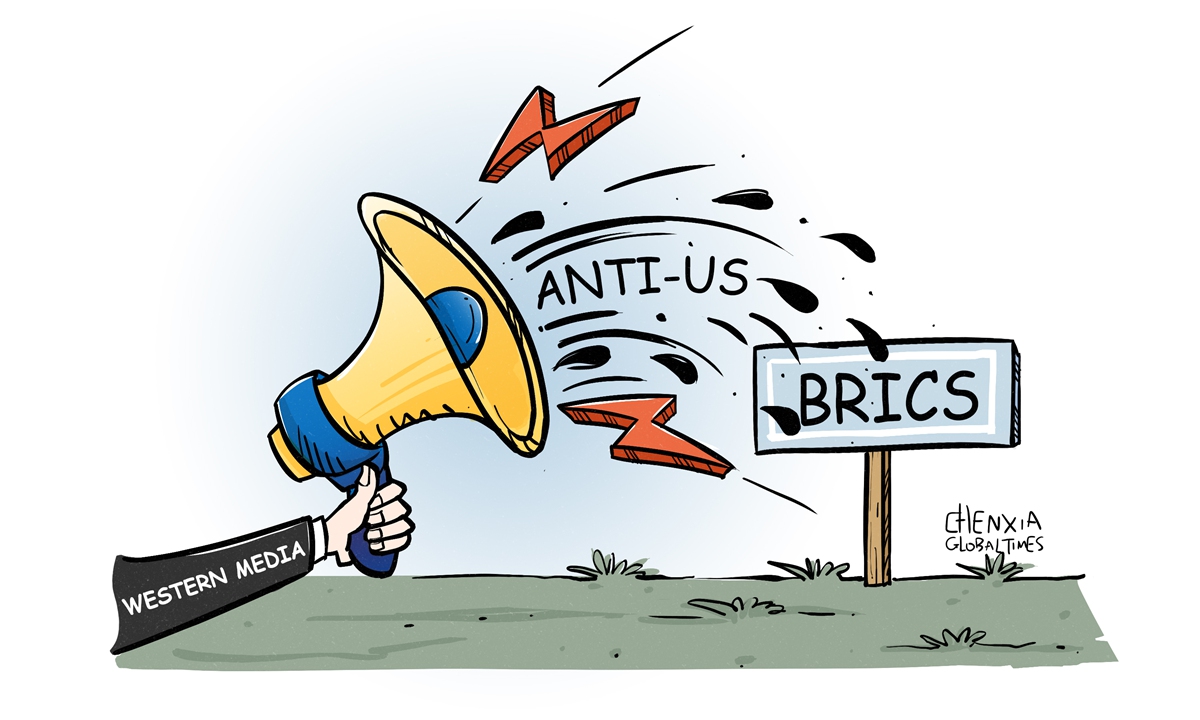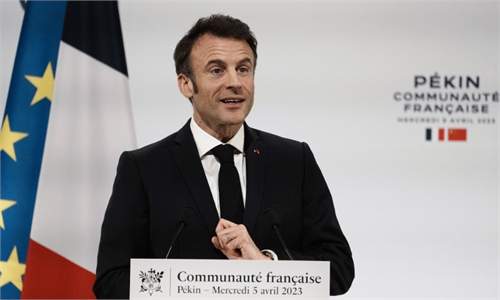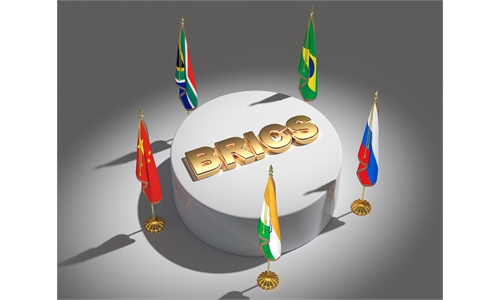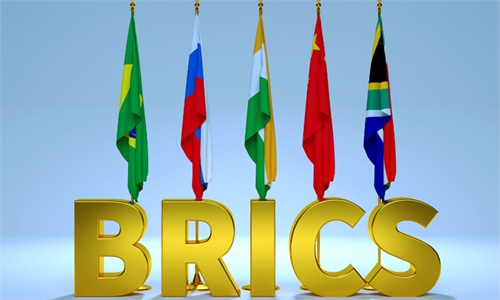
Illustration: Chen Xia/Global Times
At a time when the BRICS mechanism is becoming increasingly attractive, an article by VOA's Chinese site titled "Expansion and de-dollarization, will the BRICS turn into an anti-US camp?" claimed on Tuesday that "China hopes that the expansion of the BRICS should have the consideration of competing with the US," smearing the mechanism with sinister intensions.By inciting confrontation with a zero-sum mentality, this VOA article attempts to portray the BRICS, an inclusive multilateral cooperation platform that promotes mutual benefit and win-win results, as an exclusive organization. It is also trying to drive a wedge among the countries of the BRICS cooperation mechanism. However, such smears that go against the facts cannot interfere with cooperation among the BRICS countries or undercut the attractiveness of the mechanism.
This round of smearing of the BRICS cooperation mechanism by the Western media has been going on for some time. For example, after the BRICS foreign ministers met in South Africa on June 1 and 2, the US Newsweek website published articles such as "BRICS is evolving from China-Russia dream to potential US nightmare" and "China's and Russia's growing BRICS bloc speeds decline of US influence."
Unlike the earlier despising and bad-mouthing of the BRICS, the US and Western media now show more worries and fears about the rapid expansion of the cooperation mechanism. This change fully reflects the indisputable fact that the BRICS mechanism has gained momentum.
Indeed, as a global governance platform built by large developing economies, it has continuously deepened practical cooperation and increasingly become a model of promoting South-South cooperation. The new vision of global governance advocated by the BRICS mechanism has increasing appeal. 19 new countries have formally or informally approached BRICS to express the interest in becoming members as it prepares to hold its annual summit in South Africa in August, according to media reports.
The economic influence of the BRICS countries is also becoming increasingly attractive to economies around the world amid risks. In 2022, BRICS countries accounted for more than 25.6 percent of global GDP, and the group is expected to contribute more than 50 percent by 2030. The huge market potential, abundant resources and regional cooperation have made the BRICS cooperation mechanism a strong magnet for global investors.
The reason why the cooperation mechanism attracts more and more countries is because this platform meets the needs of countries seeking stable economic development and cooperation against anti-globalization and protectionism and the risk spillovers from the economic policies of developed countries such as the US.
For instance, as for the BRICS' promotion of "de-dollarization" claimed by the American and Western media, all that the BRICS countries are doing is taking legitimate steps to protect their economies from common external shocks caused by the US dollar's hegemony.
In recent years, the US has abused the hegemony of the dollar, exacerbating the risks of the world economy. In this regard, many countries, even US allies, have responded to these risks by reducing their holdings of US debt, promoting bilateral currency agreements and diversifying their foreign exchange reserves.
Now, while economies across the world are hedging the risk of dollar hegemony, the BRICS cooperation mechanism effectively helps member countries deal with the risks brought about by the hegemony of the dollar and the irresponsible monetary policy of the US.
As the BRICS cooperation mechanism is further strengthened, slandering by Western media is expected to intensify. There may be more US and Western media and experts who accuse the BRICS of "wooing Southern countries against the US and the US dollar." Or they will resume rumor-mongering and division tactics to undercut the momentum of the expansion of BRICS.
However, the expansion of the BRICS has become an irresistible trend, which is not only conducive to the sustainable development of the BRICS mechanism but also in line with the interests of developing countries. Faced with the exclusive cliques formed by the US and the West to engage in camp confrontation, developing countries will voluntarily join the open, inclusive, cooperative and win-win BRICS mechanism. The noise made by the US and the West cannot reverse this trend.
The author is a reporter with the Global Times. bizopinion@globaltimes.com.cn



